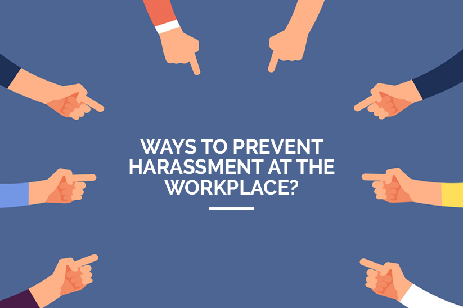Strategies for Addressing and Preventing Harassment and Discrimination in the Workplace
Workplace harassment and discrimination are not only detrimental to the well-being of employees but also pose significant risks to the overall health of an organization. Companies that prioritize creating a safe, inclusive, and respectful environment not only comply with legal obligations but also cultivate a positive workplace culture. In this blog post, we will explore effective strategies for addressing and preventing harassment and discrimination in the workplace.
- Establish Clear Policies and Procedures:
One of the foundational steps in addressing and preventing harassment and discrimination is the development and communication of clear policies. Ensure that your organization has comprehensive policies outlining unacceptable behaviors, reporting mechanisms, and the consequences for violations. Regularly review and update these policies to reflect changes in the workforce, legal landscape, and societal norms. - Conduct Regular Training Programs:
Education is a powerful tool in creating awareness and preventing inappropriate behavior. Regular training programs should be conducted for all employees, covering topics such as diversity and inclusion, unconscious bias, and respectful communication. These sessions help employees understand the importance of maintaining a harmonious workplace and provide them with the tools to recognize and address discriminatory actions. - Foster a Culture of Open Communication:
Encourage open communication within the organization by fostering an environment where employees feel comfortable expressing their concerns. Implement anonymous reporting mechanisms to allow individuals to report harassment or discrimination without fear of retaliation. HR should maintain an approachable demeanor, emphasizing their commitment to addressing issues promptly and confidentially. - Prompt and Thorough Investigations:
When allegations of harassment or discrimination arise, it is imperative to conduct prompt and thorough investigations. HR professionals should handle complaints with sensitivity and impartiality, ensuring that all parties are given an opportunity to present their perspectives. A transparent and fair investigation process is crucial for maintaining trust within the workforce. - Implement Diversity and Inclusion Initiatives:
Proactively promote diversity and inclusion within the organization. Implement initiatives that celebrate different backgrounds, perspectives, and experiences. By fostering an inclusive workplace, organizations reduce the likelihood of discriminatory behavior and create a sense of belonging for all employees. - Encourage Bystander Intervention:
Empower employees to be active bystanders by intervening when they witness inappropriate behavior. Bystander intervention training equips employees with the skills to step in and address harassment or discrimination in real-time, fostering a collective responsibility for maintaining a respectful workplace. - Provide Support for Victims:
Supporting victims of harassment or discrimination is essential for their well-being and the overall health of the organization. HR should ensure that victims have access to counseling, legal resources, or any necessary accommodations. Establishing a support system communicates to employees that the organization takes their concerns seriously and is committed to their welfare. - Regularly Review and Update Policies:
In the dynamic landscape of the modern workplace, it’s crucial to regularly review and update policies to stay ahead of emerging issues and changing legal requirements. Consider seeking input from employees and incorporating feedback to ensure that policies reflect the evolving needs of the workforce.
Conclusion
Addressing and preventing harassment and discrimination requires a proactive and multifaceted approach. By implementing clear policies, conducting regular training, fostering open communication, and actively promoting diversity and inclusion, organizations can create a workplace where every individual feels respected and valued. These strategies not only contribute to legal compliance but also cultivate a positive and inclusive culture that enhances employee well-being and organizational success.











 LOOKING FOR A JOB?
LOOKING FOR A JOB?